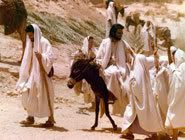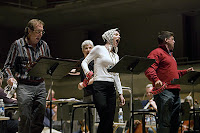Last Friday I started this two part series on ways to improve writing skills, and explained how I came to be asking this question, threw it open for answers, and took a brief look at some recent posts on the subject. This time I want to post my top ten ways to improve writing skills. Like all skills, it's part natural, but part down to practise and hard work.
I've still got a long way to go to improve my writing, but a key aspect in that improvement is knowing how to go about doing it. So the following are a few things I've picked up. Some of these I'm good at: some of these less so. But in case they're useful for others, I thought I'd post them. Some apply more to aspiring film writers; others are more relevant to those doing more academic writing; others are more universal.
= = = = = = = = = =
Top Ten ways to Improve your Writing1 - ReadThe best way to grasp what makes good writing is to be immersed in it. Aside from trashy novels, the majority of books that have been published will be reasonably well written, and so by reading frequently the good will outweigh the bad and improve your familiarity with written English.
It's also worth finding writers who you realise are particularly good at expressing themselves in print (or on the internet) and reading as much of their work as you can. There are a range of writers, from very different fields who I admire, be it Ebert, Yancey, Goodacre, Reinhartz, or Wright to name but a few. It will be different for everyone. Usually, the reason that these particular authors stand out in our minds is because their writing is not only correct, but it is also clear, vibrant and well crafted. The most obvious marker can be how easy it is to follow their arguments relative to the complexity of their subject.
For some, this is natural, for others it is a commitment to the kind of hard work that produces just the right word or nice turn of phrase. Reading a lot of those top writers will mean that at least some of it will rub off on you. This is one of those areas I need to work on more.
2 - Learn about GrammarI must admit my grammar is a weak point, but in recent months I've started to be deliberate about improving it. Whilst it's a mistake to think that good grammar is all that's required for good writing it's certainly an important building block. In popular writing there may be the odd, very notable exception, but in academic writing it's even more black and white. If you can't write well your work won't be taken seriously, no matter how good your ideas are.
I've read a couple of books on this recently. Brian Phythian and Albert Rowe's
"Teach Yourself : Correct English" is a good, balanced overview of the technical aspects of the English language. Conversely,
John Humphrys' "Lost for Words" is more impassioned plea to stop the mangling of the English language (as well as a call for better English). Between them they provide the know-how and the impetus to change.
I've also just received a copy of
"Eats Shoots and Leaves" by Lynne Truss which comes highly recommended, as something between the two. Another book which I'm thinking of reading of is Constance Hale's
Sin and Syntax which seems to deal with both grammar and style.
3 - Enjoy itWriting is not well paid enough to choose it as a career (unless you're happy to write about Posh Spice's latest fashion purchase), so most of us do it because we enjoy communicating our ideas. It doesn't always seem that way, particularly in academic writing, or if you have an impending deadline, but it's something you cannot afford to forget. Once you lose your enjoyment of it, it becomes a chore, you don't give yourself to it fully and your quality drops. This can turn into a vicious circle, so take time to remind yourself of why you want to communicate your ideas.
4 - Write for different contextsAside from discussion forums, most of my writing has taken place on this blog. However, I've discovered that writing for other audiences has generally improved my writing. It's obvious that the more stringent standards of academic writing will prove stretching, but I've also discovered that the opposite is true. From the start of this year I've also been reviewing films for the
rejesus blog. My brief is clear: write for a broad audience.
What's been surprising, though, has been the way that this has improved my writing. I've had to be much more careful about the words I've used. It's prevented me from retreating into the shadows of overly long words safe in the knowledge that my audience is intelligent enough to grasp what I'm saying. Having to work under this particular spotlight has forced me to find greater clarity in what I say.
Many writers, particularly in academic contexts, would do well to take this on board. I've gradually come to realise that often the reason I don't really get what a particular writer is saying is not necessarily because I'm stupid, but because they're not explaining themselves very well. I'm partway through a book at the moment where this is particularly apparent because the book is a collection of essays by different authors. I won't name it, but some chapters are full of unnecessarily complicated words, overly long sentences and poorly expressed ideas.
I do wonder if sometimes this kind of book is the worst for this kind of thing as the various authors, feeling the pressure of their work standing side by side with that of their peers, try to compensate by being verbose.
5 - Know your audienceIt's an easy mistake to make, but you need always to have your audience in mind when you write. It may help to keep in mind as you write one or two people who typify that audience and imagine whether they would understand what you have written and how they would react to it.
6 - Write more oftenStretching yourself generally results in getting better at the things you are trying. One of the reasons I started this blog was to give me the discipline of writing more frequently. It was the latest in a series of steps to increase the rate at which I wrote. Just as practising anything more frequently results in getting better at it, writing more often will generally improve your skills.
Of course it's possible to go too far. Quantity can certainly be detrimental to quality, especially if you get writing fatigue. The risks of that, however, are probably overstated. I've noticed that whilst there might be an initial drop in quality, after a while the quality improves again, and often goes far higher as skills that were hard to master at first become second nature.
7 - Stretch yourselfI guess this is taking the principle behind 3 and 4 and applying them elsewhere. It may be writing in a more stringent context, or about a more difficult or challenging subject than usual, or with greater length, or more succinctly.
8 - Seek feedbackI
hate seeking feedback, but I force myself to be receptive to it whenever it is offered, because it's the best way to learn – at least in small doses. It's tough, particularly if you're as insecure as I am, but it is the only way to find out about your hidden weaknesses.
9 - Read it throughHe says, aware that he's got about 5 minutes left to post this and he should have stopped ages ago!
On a more serious note, I'm always surprised how repeatedly reading something through, (particularly if you also have to reduce your number of words) drastically improves it. Somehow the third or fourth time around the flaws become far more annoying, and you have fresh ideas for how to improve things.
10 - Spell checkMainly one for bloggers, but this is all too common, and rarely excusable. At the very least you can copy things into Word or equivalent. If you find that too annoying then you may appreciate the
Mozilla inline dictionary which underlines in red any errors (like word) only it does it in browser windows.
= = = = = = = =
I'm fearful in posting this up that all the mistakes will be laid bare, and that's probably fair enough. Hopefully though some will find at least part of it useful.
 The latest Jesus Film Podcast is now available. This month it's Roberto Rossellini's Il Messia. This is partly because I'm going to see Rossellini's other Bible film Atti Degli Apostoli in a couple of weeks but mainly because Il Messia itself will be showing in a few weeks. I've already mentioned the details of these screenings and tickets can be bought from the BFI.
The latest Jesus Film Podcast is now available. This month it's Roberto Rossellini's Il Messia. This is partly because I'm going to see Rossellini's other Bible film Atti Degli Apostoli in a couple of weeks but mainly because Il Messia itself will be showing in a few weeks. I've already mentioned the details of these screenings and tickets can be bought from the BFI.






